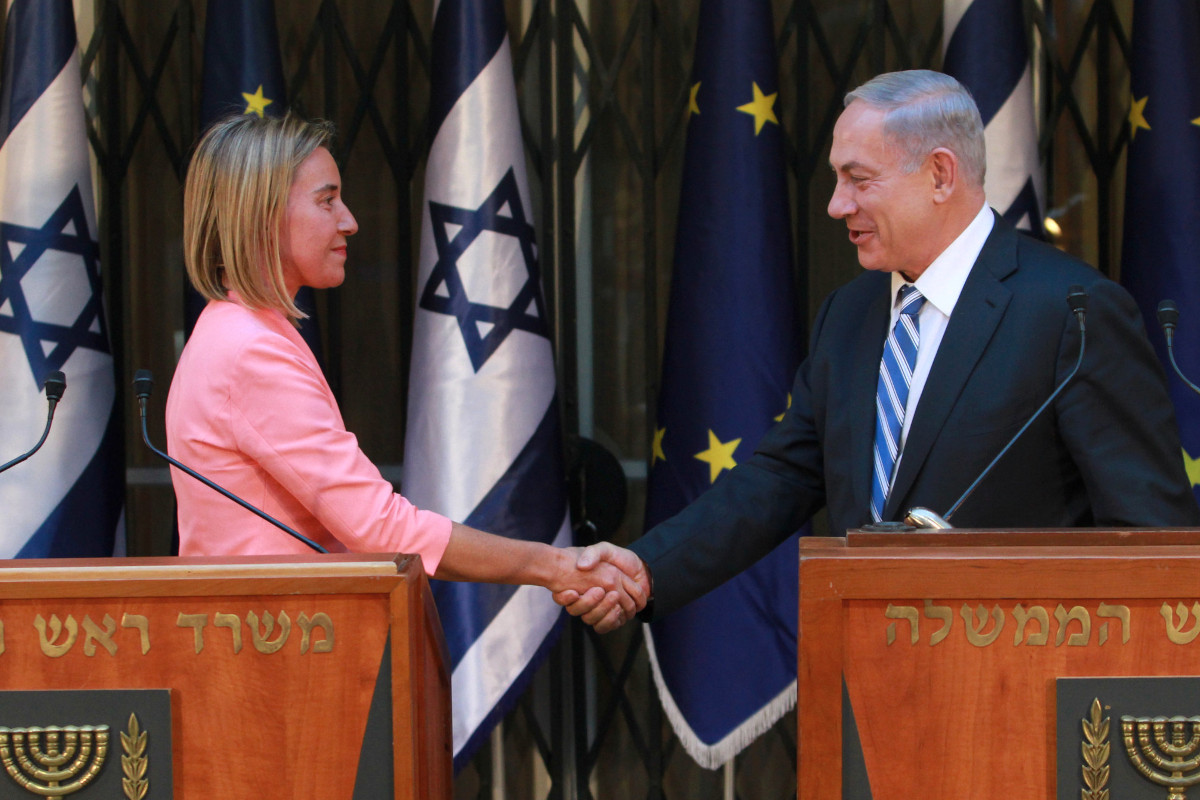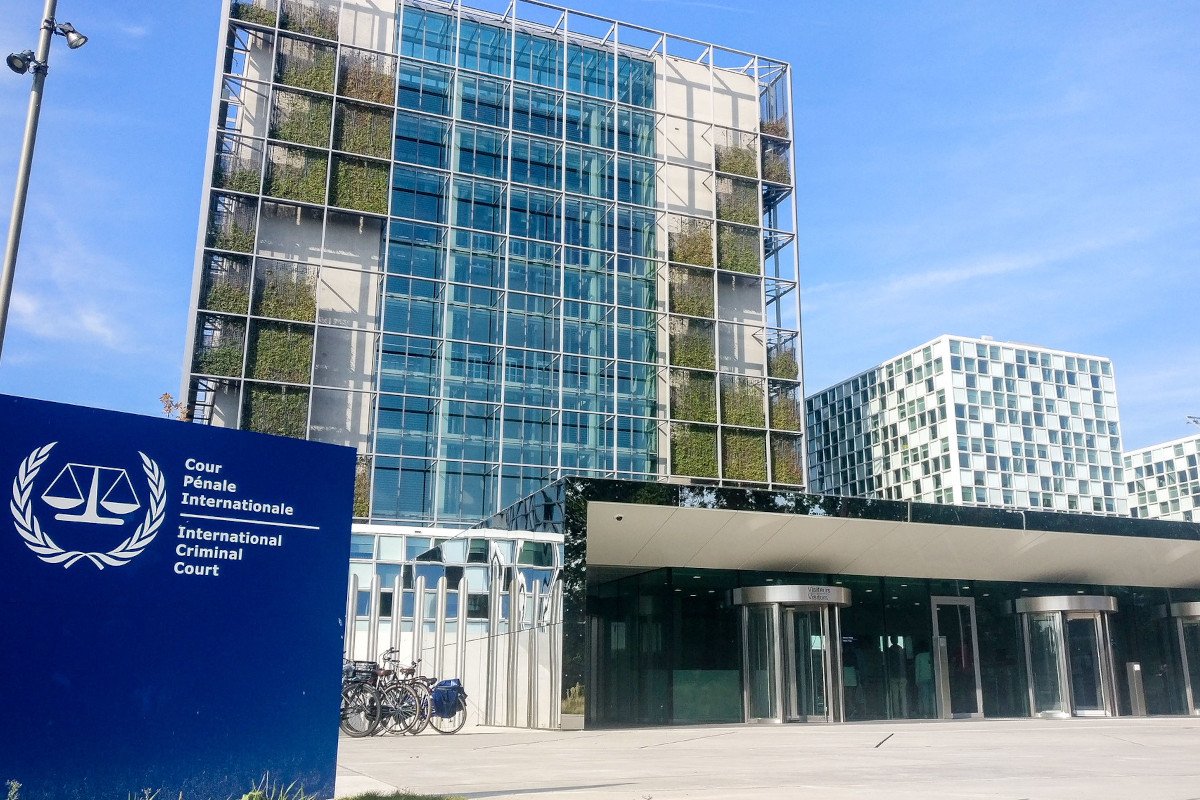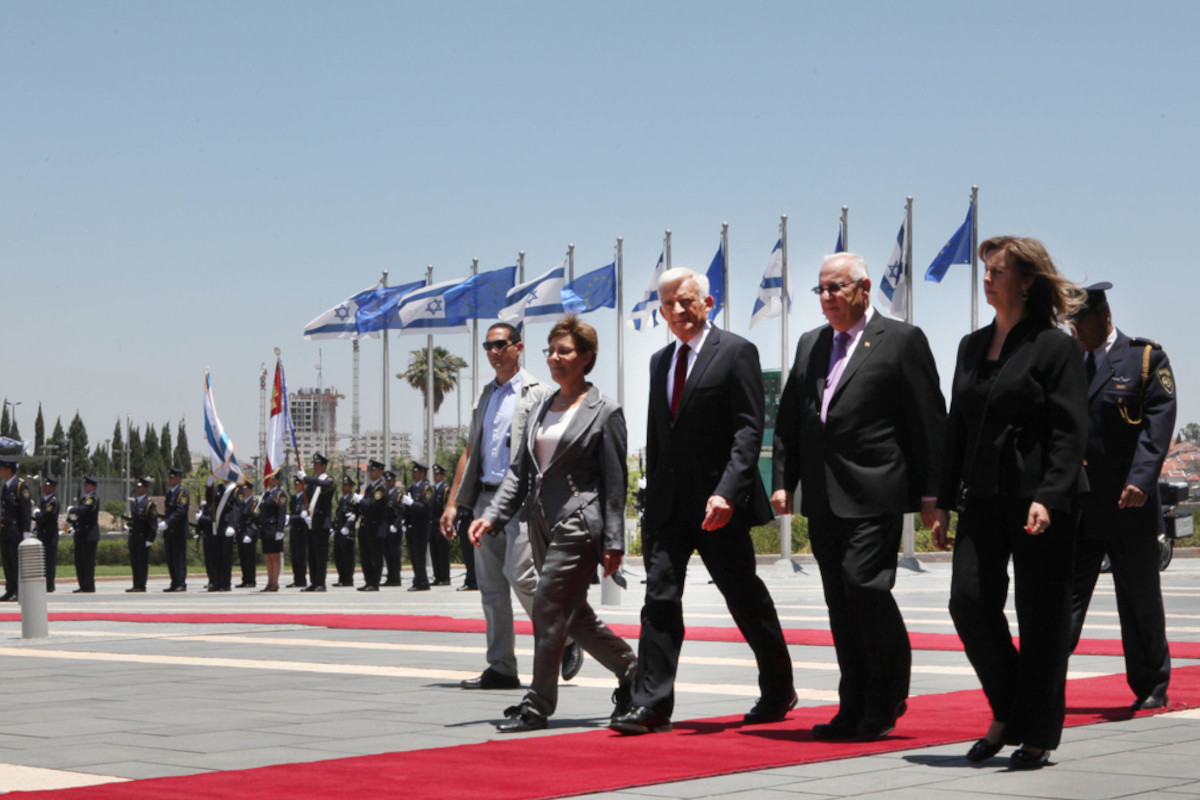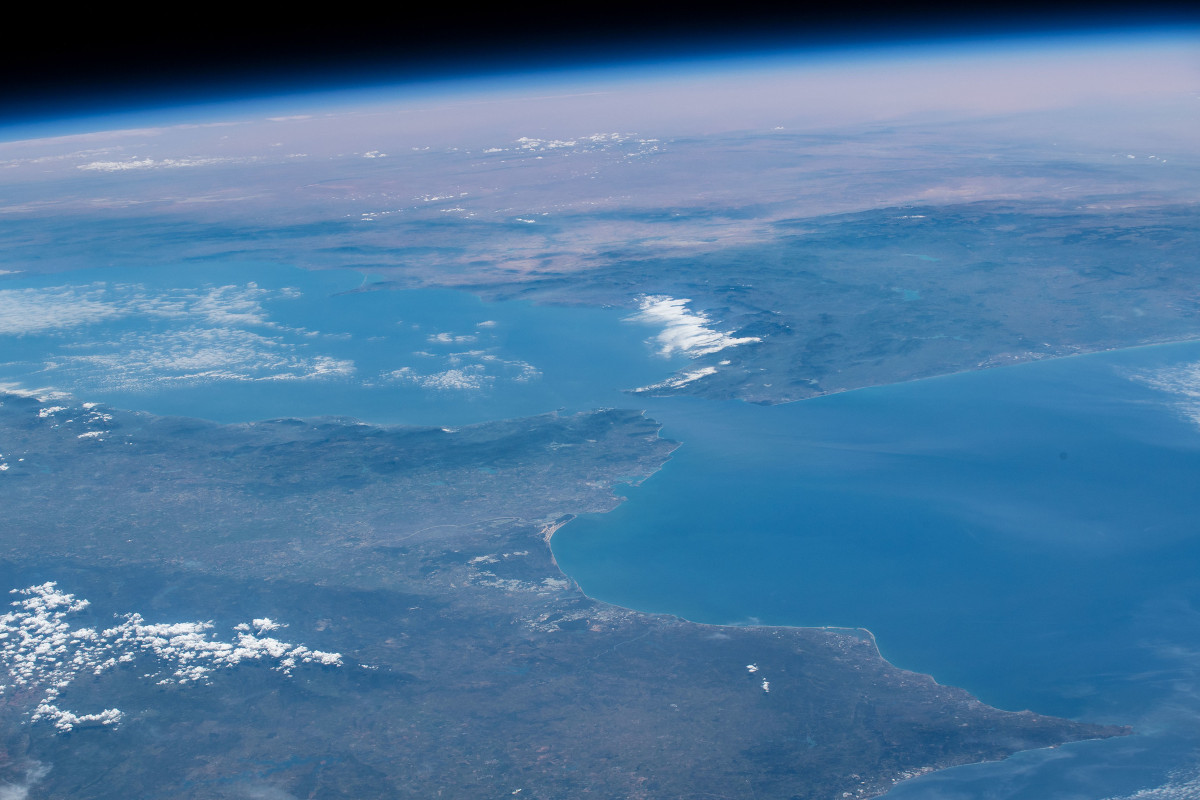Will the EU finally stop financing Israel’s genocide in Gaza?
Topic
Country/Region
01 August 2025
Last Tuesday, the European Commission proposed to partially suspend Israel from its €80bn Horizon science research programme, citing the “severe” humanitarian crisis in Gaza. But this proposal comes late, after years of funding military-linked research with minimal transparency or accountability. As the death toll mounts and Gazans face man-made famine, the EU’s role in bankrolling violence is under scrutiny.
Support our work: become a Friend of Statewatch from as little as £1/€1 per month.

Image: European Parliament
When it's too late
“One day, when it’s safe when there’s no personal downside to calling a thing what it is, when it's too late to hold everyone accountable, everyone will have always been against this.” (Omar El Akkad)
That line, from the front cover of Omar El Akkad’s book, captures a sentiment echoed by academics across Europe, who, several months after Israel launched its full-scale attacks on Gaza, demanded that the EU stop funding research that may contribute to human rights violations.
Israel has long been a key collaborator to EU research projects, to the extent that the EU’s former foreign policy chief, Javier Solana once said: “Israel is, allow me to say, a member of the European Union without being a member of the institutions.” The academics’ joint letter explains that “from 2014 to 2020, Israeli organizations, including military companies and institutions, were involved 2105 times and received 1,28 billion Euros from the EU.”
As far back as 2010, Statewatch researcher Ben Hayes asked: “Should the EU subsidise Israeli security?” Today, it is impossible to look away from the genocide in Gaza and Israel’s recurring violations of international and humanitarian law, documented by Palestinian journalists, international courts and NGOs such as Amnesty International and Human Rights Watch.
How did we come to this?
In March, a joint investigation by Statewatch and Informationsstelle Militarisierung revealed that a drone manufacturer involved in the war in Gaza received European funding. How did we come to this? Whose decisions led us here?
In reports written with the Transnational Institute (TNI) in 2006 and 2009, Statewatch denounced the European “security-industrial complex” as an unholy alliance or, rather, as the domination of the military and security industries over the strategic priorities of the European Union.
A report commissioned by the European Parliament denounced that European research funding goes to “large defence companies, the very same who have participated in the definition of EU-sponsored security research,” and of which they are “the main beneficiaries of funds.” In other words, they define the terms of the EU research programmes on security and are paid handsomely for it.
Despite calls to prioritise human rights, democracy, and transparency in the EU budget for the 2021-27 period, the EU tripled its border security and migration spending to €34.9 billion and made no change to its priorities — despite potential “dysfunctional and deadly effects”.
The detrimental impact of Europe’s experimental security projects on human rights at the EU’s borders has been well documented, such as by researcher Petra Molnar.
Researcher Lena Karamanidou of the Border Violence Monitoring Network has also “found evidence that two Horizon 2020 projects, Nestor and Andromeda, have been tested in the area [Evros, Greece] and used by local police authorities for real-life border control activities, outside of the research framework.”
The impact and results of projects funded by the EU have always been challenging to access, including information on whether or not they are being used at all. The EU Court of Auditors found in 2014 that “very few of the projects looked likely to result in concrete products.
A Member of the European Parliament, Patrick Breyer, tried to obtain further information on the results and ethical evaluation of a controversial EU-funded border control project, which was tested at several border crossings. The European Court of Justice denied access to the information, ruling that the “protection of the commercial interests of the members of the consortium participating in the project” was more important than the public interests of transparency and democratic debate.
This seems likely to worsen with two major transparency challenges in the next EU research funding program: EU agencies and "artificial intelligence" (AI). EU agencies have a new role in supporting the EU's “technological research and development programme”. But over the years, journalists and transparency activists have regularly denounced their disregard for transparency obligations.
AI hype has evidently infested the EU’s funding priorities, with the Commission deciding to invest more than one billion euros annually. But the AI Act, which was supposed to limit the worst impacts on society of the so-called next industrial revolution, is riddled with loopholes when it comes to migrants’ rights and security policy. Our recent report, Automating Authority, argues that this law draws a "silicon curtain" of secrecy over the use of AI by law enforcement agencies.
Structural problems and the next “war budget”
In the light of the EU's ongoing support for Israel's war of annihilation in Gaza, opacity and secrecy over the ethics and results of research projects is perhaps only a minor problem. Yet, Europe’s unwavering support in both contexts is telling of the way in which the security research programme prioritises corporate profits and geopolitical strategy over human rights and democratic standards.
These aren’t isolated issues — they are structural problems. The Commission has been so far unsuccessful in making member states agree to suspend Israel’s access to Horizon funding. Former top EU’s diplomat, Joseph Borrel called the proposal a “bad joke” and said it would do little to pressure Israel.
Only structural change in EU strategy would have an impact. Yet there’s little sign these problems will be addressed in the EU’s next budget cycle. That’s why campaigners are calling it what it is: a war budget.
As Sarah Chander, director of the Equinox Initiative for Racial Justice, describes: “The EU is creating a war budget under another name.”
She argues that “the EU and Member States undermine what gives us real safety and security: environmental protection, housing, healthcare and social welfare,” and calls for the EU to “divest from the war economy and invest in peace and social protection instead.”
Author: Romain Lanneau
Our work is only possible with your support.
Become a Friend of Statewatch from as little as £1/€1 per month.
Further reading

Palestine: 300 academics call for halt to EU research funding that violates international law
Almost 300 academics from universities across Europe and beyond have called for the EU to stop funding research projects "that may, directly or indirectly, violate international law and human rights," in particular with regard to substantial research funding the EU provides to institutions in Israel.

Case filed at ICC to prosecute Israeli officials for incitement to genocide
A Franco-Israeli lawyer has filed a case with the International Criminal Court (ICC), calling for the prosecution of eight individuals for the crime of incitement to genocide: seven current and former high-ranking Israeli government and military officials, and a journalist. The submission, obtained by Statewatch, is published here.

Call to suspend EU-Israel agreement over violations of Palestinian rights
Statewatch is one of 160 organisations that are calling for the suspension of the EU-Israel Association Agreement due to ongoing human rights violations in Occupied Palestinian Territory. The Association Agreement is conditional upon "respect for human rights and democratic principles" by both the EU and Israel, says a statement published today by the organisations. It calls for suspension of the Agreement "until the EU is confident that nothing in its relations with Israel contributes in any way - political, financial, military, technical, trade, anything - to the continuation of the occupation and of the denial of the rights of the Palestinian people."
Spotted an error? If you've spotted a problem with this page, just click once to let us know.

